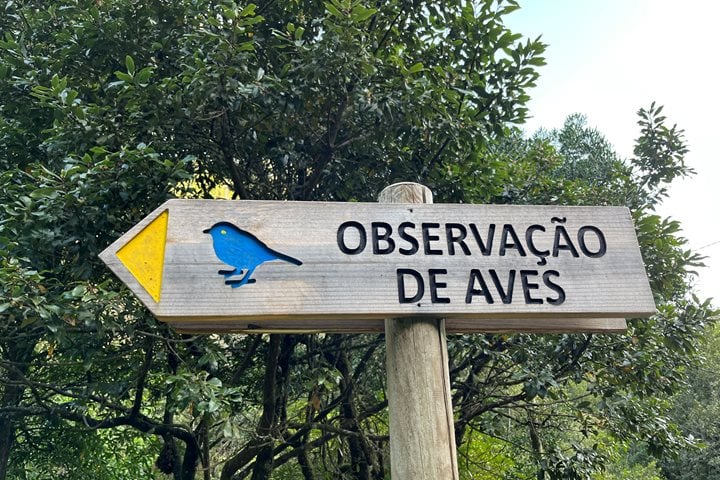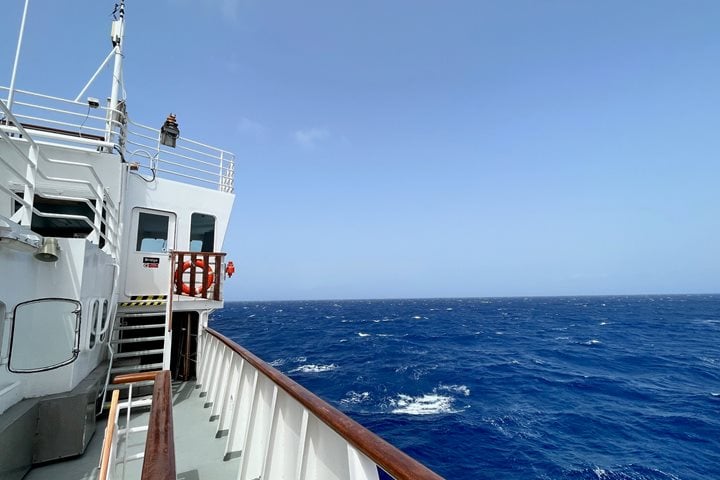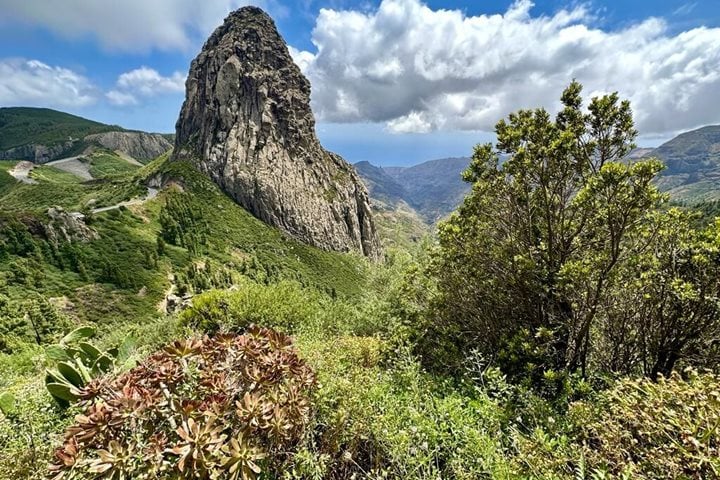The Epic 108 voyage has, thus far, traversed the shallow continental shelf east of Argentina. Surrounding ocean waters have been cold as the Falkland Current, a branch of the Antarctic Circumpolar Current, reaches north through this region, bringing vast ecologically-valuable nutrients to fuel marine ecosystems here. The bright lights of squid fishing vessels out our portholes offer the reminder that others are present these some 250 nautical miles offshore. We’ve commenced basic oceanographic sampling, measuring a small suite of parameters that will offer a glimpse to the sea’s ever-changing chemical and biological conditions as we sail north. To date, our observations show water temperatures warming—a clear sign we’re gradually heading towards the Equator!
In recognition of Easter Sunday, a new species appeared onboard around the lunch hour today: marzipan penguins carefully created by National Geographic Explorer’s galley team and assistants. Beautiful open ocean vistas and clear, sunny weather rounded out our first weekend underway together.
Tomorrow’s visit to Puerto Madryn is eagerly anticipated by our ship’s company. This is the largest town near Peninsula Valdes, a UNESCO World Heritage site designated because of its important wildlife habitat. The region hosts southern right whales on a seasonal basis, and a diversity of other marine mammals and seabirds year-round. Puerto Madryn offers the opportunity to go for a walk ashore, but also to explore the rich heritage of a local Welsh community founded in 1874 and learn about ongoing paleontological efforts and recently discovered dinosaur fossils.







